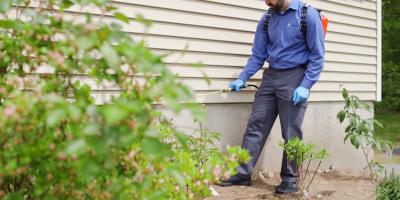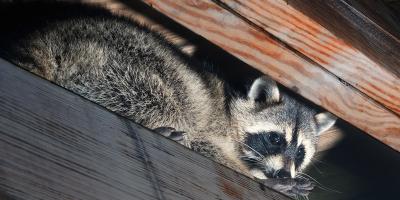Do Certain Plants And Herbs Work As Natural Pest Repellents?

Certain plants and herbs serve as natural repellents for some of the most destructive and annoying insects, including termites and mosquitoes. If you’re planting a bed in your yard or garden, allow these commonly used varieties to help repel certain pests -- in conjunction with professional pest control services, of course!
Basil, rosemary, mint, thyme, and lemongrass may help to repel mosquitoes. The smell from these fragrant herbs naturally repels many invasive insects. Citronella, often used in store-bought mosquito repellants, naturally occurs in lemongrass to repel annoying flies and mosquitoes. When tiny oil-containing globules on these herbs evaporate, they create a strong scent which is what helps ward off some types of insects.
Garlic is another herb to consider for a natural pest repellent – when planted near roses, garlic will protect them from aphids. Aphids are commonly found feeding on new growth in clusters, and can damage the integrity of a plant as well as make your garden unsightly. Strong-smelling herbs like garlic can discourage aphids from landing on plants you want to protect.
Lavender may also help to repel mosquitoes, as well as moths, fleas, and flies. While people love the smell of lavender, certain insects hate it. Some people even keep bunches of dried lavender around their house to deter insects and make them stay outdoors. As an added bonus, the soft purple flowers look nice for decoration. You can also plant lavender in your garden or around doorways to help repel certain pests in these spaces as well.
Chrysanthemums can aid in the fight against certain pests. This ornamental flower repels some of the most despised household pests – cockroaches, ants, Japanese beetles, ticks, silverfish, lice, fleas, bed bugs, spider mites, and root-knot nematodes. What makes the chrysanthemum such an effective repellant is the naturally occurring ingredient, pyrethrum.
Marigolds have been known to help protect gardens from the hungry mouths of rabbits, and their roots provide protection from harmful nematodes. They also may help to repel mosquitoes.
Carnivorous plants such as the Venus flytrap or the pitcher plant are other options for trying to naturally repel pests. These plants literally eat insects, including ants, wasps, bees, beetles, slugs, and snails, using acidic enzymes to digest them. They may seem too exotic for an everyday gardener, but surprisingly, they can be bought in most home improvement or gardening stores.
For more information on how plants can be natural repellants in your backyard or garden, contact JP Pest Services for a free consultation.



